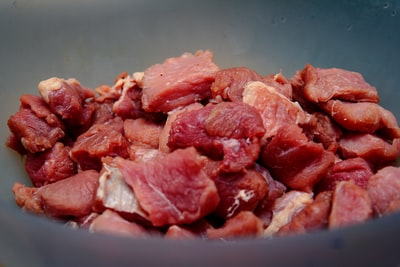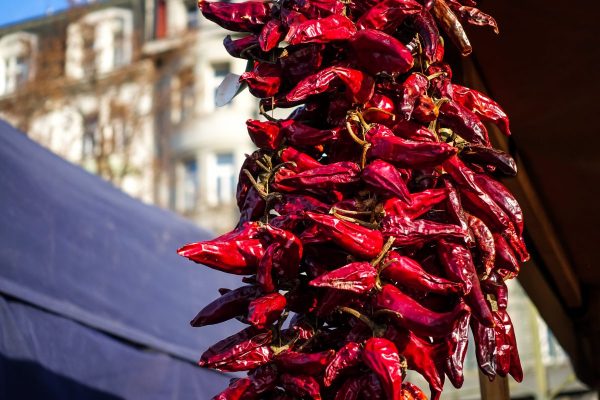Ingredients
- 5 coriander roots
- 1 prawns
- 110 gr mungbean noodles
- 30 ml soy sauce (light)
- 30 ml cooking oil
- 16 ml maggi sauce
- 16 ml oyster sauce
- 16 ml whiskey
- 14 gr sugar
- 8 gr pepper corns
- 5 ml sesame oil
- 1 gr salt
- 3 slices ginger (sliced)
- 1 slice onion
-and cut into short lengths Here's a goody that came out of my new Thai cookbook. It's easy and quick to do and quite tasty. It's a baked dish, which is unusual for Thai cooking. I suspect that originally, it would have been steamed. Next time I'll try it that way or put a tablespoon of water or sherry in each bowl. It seemed a tad dry to me. I cooked it in individual French onion soup bowls with lids. Place the oil in a wok, heat and stir fry the coriander root, ginger, pepper and onion. When fragrant, remove from the wok and place in a mixing bowl. Add the noodles, the sauces. salt, sugar, sesame oil and whiskey, toss the noodles until well coated, and then add the prawns and toss well once again. Divide the noodles and prawns into four individual portions; place each portion in a lidded cup, and close the lids. Place the cups on a baking tray and bake at 240ºC until the prawns are done (about 10 minutes). Serve hot with fresh vegetables, such as tomatoes and spring onions. Serves four. From "The Elegant Taste of Thailand, Cha Am Cuisine" by Sisamon Kongpan and Pinyo Srisawat. SLG Books, Berkeley and Hong Kong, 1989. ISBN 0-943389-05-4. If you can buy coriander bunches with the roots untrimmed you'll be in good shape. If not, substitute stems. I left it out as the person I was eating with doesn't like coriander at all. It doesn't say to, but I cracked the peppercorns slightly before adding them to the mix. By light soy sauce, they mean like in thin soy, rather than as in "lite" soy sauce. Maggi Sauce is a condiment sauce++originating in France, I believe++ popular in Asia. It's somewhat like a slightly thick soy sauce. It can be found in the gourmet sections of supermarkets as well as in Asian markets. If I didn't have any, I'd use thick Chinese soy in it's place. If you can find the Maggi Sauce grab it. It lasts virtually forever in the fridge. Get a small bottle, though. I run across very few recipes that call for it. It's used as a table condiment in Asia and is often seen on the tables at Vietnamese restaurants here in the States. The mungbean noodles are the thin, clear "cellophane" noodles. I'd have no qualms about using the similar thin rice noodles if I couldn't find mungbean ones. I picked up a neato garnish from the photo with this dish. It shows a green onion "brush" with a slice of red pepper around the middle. Quite attractive and easy to make. Cut a slice of scallion++the whitish part++about an inch and a half long. Slice a fresh red chili into quarter-inch slices. Take a length of scallion and push the seeds and pulp out of the chili slice. Slip the rind down to the middle of the piece of scallion, then cut the exposed pieces of scallion with a thin, sharp blade all the way through. Make two cuts vertically, then rotate the scallion and make two more cuts. Do both ends, then toss the bundle into a bowl of water with lots of ice cubes and the slit ends will curl up making a nice, tassley looking garnish that's great to eat too. The trick is to get chilies that are about the same diameter as the scallions so it's a snug fit. Just toss a couple of the chilly, frilly scallions into each bowl before serving. It's a little touch, but it adds a lot to the appearance of the dish.

